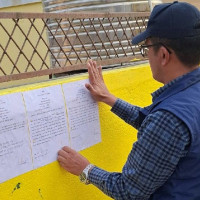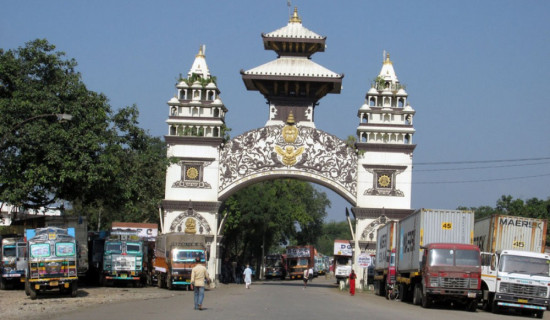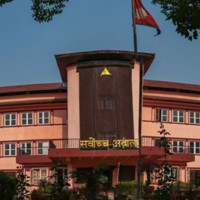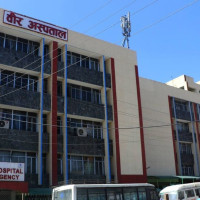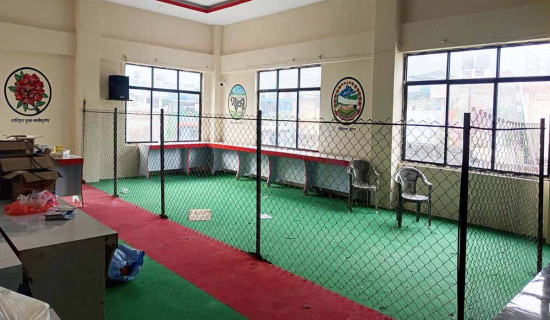- Tuesday, 3 March 2026
Province ministers to heed Gen Z demands while framing budget
By Rammani Dahal,Makwanpur, Nov. 2: Economic Affairs ministers of seven provinces have pledged to formulate their provinces’ policies, programmes, and budgets by embracing the demands and sentiments of the Gen Z.
In a joint move to strengthen fiscal federalism, the provincial ministers for economic affairs and planning issued a 25-point Hetauda Declaration, expressing their commitment to accountability and good governance in response to the demands of the Gen Z. Following an interactive workshop on ‘Strengthening Fiscal Federalism and Future Directions’ organised by the Ministry of Economic Affairs and Planning of Bagmati Province in Hetauda on Saturday, the provincial economic affairs ministers issued a shared commitment.
They noted that the demands and demonstrations held by Gen Z in September this year clearly reflected the public aspirations for transparency, accountability, and reform.
The Declaration states that by internalising Gen Z’s demands and sentiments, the provinces are committed to improving their policies, budgets, and programmes to ensure good governance for the people.
Bagmati Province’s Minister for Economic Affairs and Planning, Prabhat Tamang, informed that the ministers had agreed to establish a Provincial Economic Affairs Council as a permanent mechanism comprising all seven provincial economic affairs ministers.
According to him, the council will work on strengthening fiscal federalism, coordinating inter-provincial financial laws and policies, developing a shared financial agenda, and facilitating coordination between the federal and provincial governments.
Similarly, promoting debate and advocacy on fiscal federalism, and undertaking institutional reforms to enhance the provinces’ financial authority will also be the concerns of the council.
The declaration also calls on the federal government to investigate and take legal action against those involved in acts of arson, vandalism, looting and theft of public and private property during the Gen Z demonstrations. It urges the government to provide necessary support for relief, rehabilitation, and reconstruction efforts.
Given that the provinces’ revenue bases remain weak, the joint commitment document requests political parties and other stakeholders to prioritise expanding the provinces’ limited revenue authority through constitutional amendment discussions to ensure fiscal autonomy and strengthen internal revenue generation.
Furthermore, based on the revenue reform action plan, priority will be given to mobilising internal resources. Likewise, efforts will be made to maintain uniformity across all provinces regarding vehicle taxes, house and land registration fees, natural resource extraction fees, and entertainment tax rates set by the provincial governments.
Although vehicle tax falls under the exclusive jurisdiction of provincial governments, fines collected by traffic police currently go to the federal consolidated fund. The Hetauda Declaration mentions that initiatives will be taken to ensure such revenues are deposited into the respective provincial consolidated funds.
The declaration also states that legal ambiguities surrounding the collection and distribution of revenues from stone, gravel, sand, and natural resource extraction fees will be clarified by amending the Local Government Operation Act 2017. A systematic coordination will be made for the same.
It further proposes the formation of a thematic committee, coordinated by the provincial economic affairs minister, to harmonise, coordinate, and promote cooperation in fiscal policy between provincial and local governments.
The programme was attended by Prabhat Tamang, Economic Affairs and Planning Minister of Bagmati, Dhanendra Karki of Lumbini and Ram Bahadur Magar of Koshi. Secretaries of the concerned economic affairs ministries of all seven provinces represented their government at the programme.





